Getting a prosthetic limb can be life-changing, giving back independence and confidence. However, prosthetics can be expensive, and insurance can help cover some or all of the costs. The process of claiming insurance for prosthetics can feel overwhelming, especially when dealing with paperwork. But don’t worry—understanding what documents you need can make everything much easier.
Insurance companies have strict guidelines, and missing even one important document can cause delays or even rejection. Knowing exactly what to submit and ensuring your paperwork is correct the first time will save you time and stress. In this guide, we’ll break down all the essential documents you need to successfully claim insurance for prosthetics.
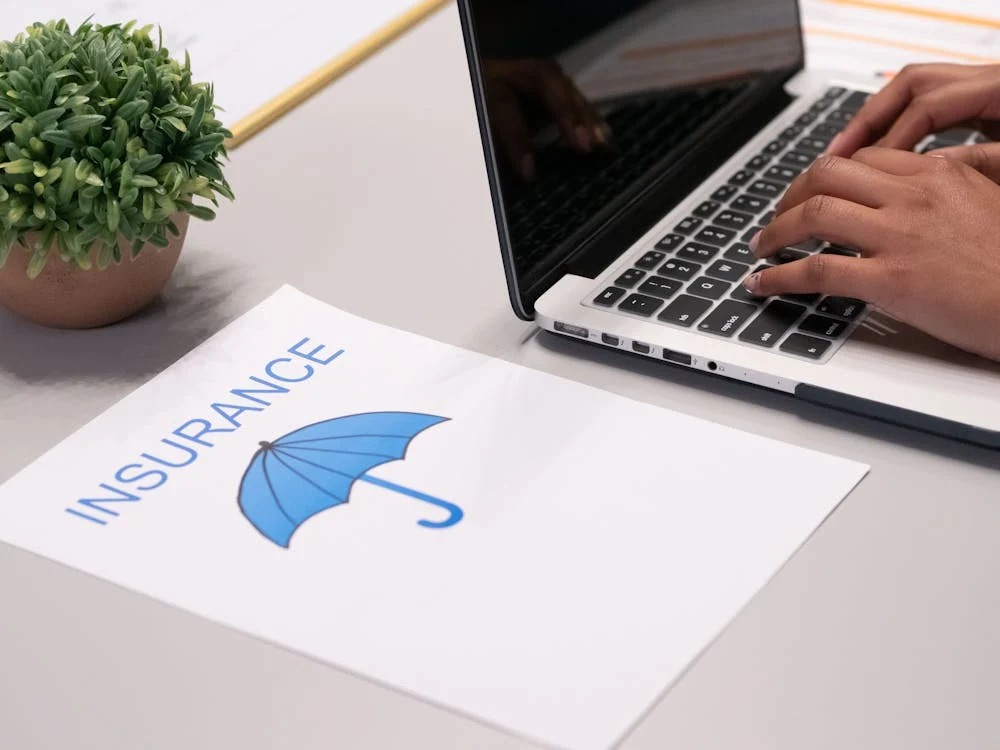
Understanding Insurance Coverage for Prosthetics
Before gathering your documents, it’s important to understand how insurance coverage for prosthetics works. Every insurance provider has different policies, and the amount covered depends on your specific plan.
Some plans cover the entire cost, while others cover only a portion, requiring you to pay the remaining amount. Knowing the details of your policy will help you prepare the right paperwork and avoid unexpected costs.
Checking Your Policy Details
Start by reading your insurance policy or speaking with your insurance provider to understand what is covered. Ask if there are any restrictions on the type of prosthetic you can get.
Some insurance companies may only cover basic prosthetic limbs, while others may allow advanced bionic hands like Grippy™ from Robobionics. Also, check if your policy covers rehabilitation and repairs, as these can add to the overall cost.
It’s also crucial to find out whether your insurance requires pre-authorization. Pre-authorization means you need approval from the insurance company before purchasing your prosthetic.
If this is required, you’ll need to submit specific documents before making any payments. Getting pre-approval ensures that you don’t spend money on a prosthetic that won’t be reimbursed.
Consulting Your Prosthetist
A prosthetist plays a vital role in the insurance process. They don’t just design and fit the prosthetic; they also help provide the necessary documents.
A certified prosthetist will assess your needs and provide medical justification, which is one of the key documents required by insurance companies. This document explains why you need a prosthetic limb and how it will improve your daily life.
If you are considering Grippy™, Robobionics offers expert consultations to guide you through the process. Our team ensures you get the right prosthetic solution while also assisting with the required paperwork.
Booking a free demo can help you understand the features and benefits of a prosthetic before committing to a purchase.
Getting a Prescription from Your Doctor
Your insurance provider will require a prescription from a qualified doctor, typically an orthopedic specialist or a physiotherapist.
This prescription must clearly state that a prosthetic limb is necessary for your mobility and daily activities. Without a proper prescription, your insurance claim may be rejected.
Make sure the prescription includes your name, diagnosis, and a clear recommendation for the type of prosthetic limb needed.
Some insurance companies also require the doctor to mention specific medical codes that correspond to the diagnosis and treatment. It’s always a good idea to check with your insurance company to ensure the prescription meets their requirements.
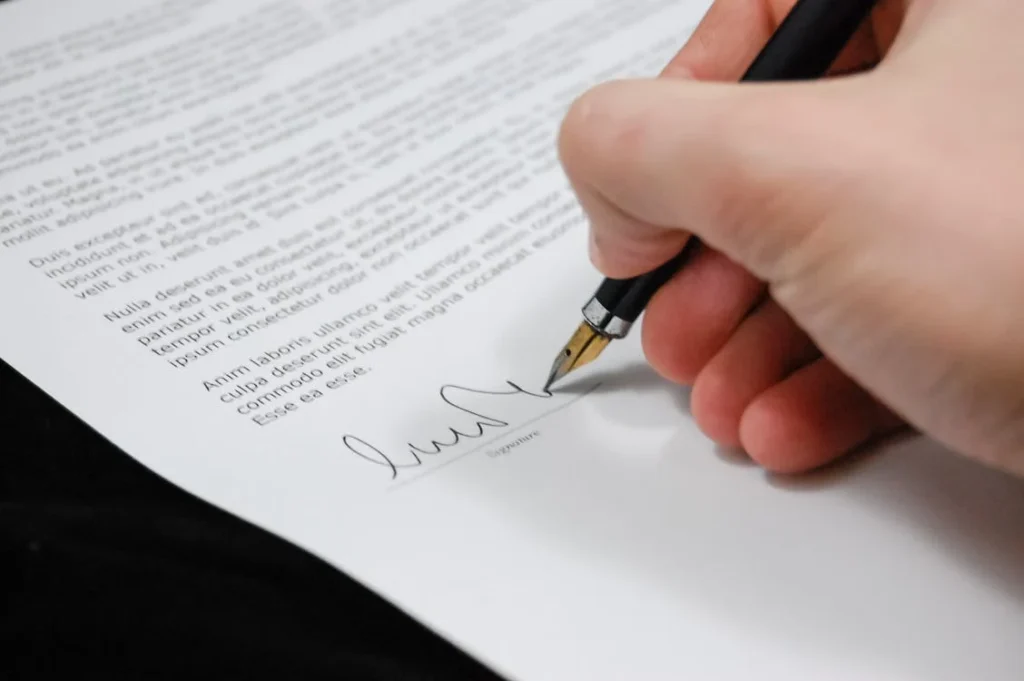
Essential Medical and Financial Documents
Once you understand your insurance coverage, the next step is gathering the necessary documents. Submitting the right paperwork ensures a smooth claim process and minimizes delays. The most important documents include medical records, financial statements, and receipts.
Medical Reports and History
Insurance companies require detailed medical reports to justify the need for a prosthetic limb. These reports should include information about your medical condition, previous treatments, and the reason for amputation or limb loss.
A recent evaluation from your doctor is crucial, as it provides updated details on your condition and confirms that a prosthetic is necessary for your mobility and daily activities.
Some insurance providers may also ask for a functional assessment. This assessment, conducted by your doctor or prosthetist, evaluates your ability to perform tasks with and without a prosthetic.
It helps the insurer understand how the prosthetic will improve your quality of life. If you are considering an advanced bionic hand like Grippy™, having a detailed report on its benefits can strengthen your claim.
Proof of Identity and Insurance Details
In addition to medical records, you will need to submit identification documents such as your Aadhaar card, passport, or any government-issued ID. These documents verify your identity and ensure that the claim is being made by the policyholder or an authorized person.
Your insurance policy documents are equally important. These include a copy of your insurance card and policy statement, which outline the terms of your coverage.
If someone else, like an employer or family member, holds the policy on your behalf, you may need additional authorization letters or proof of your relationship to the policyholder.
Cost Estimates and Invoices
Insurance companies require a clear breakdown of the cost of the prosthetic limb before approving the claim. Your prosthetist will provide an official quotation, detailing the type of prosthetic, its specifications, and the total cost.
If your insurance plan requires pre-approval, submitting this estimate early can prevent delays in reimbursement.
Once you purchase the prosthetic, keep all receipts and invoices. These documents prove that you have paid for the device and are seeking reimbursement.
In some cases, insurers may request a bill that specifies each component of the prosthetic, including accessories or additional modifications.
Bank Details for Reimbursement
If your insurance plan reimburses you after purchase, you’ll need to provide your bank details for the payment to be processed.
This typically includes a canceled cheque or a bank passbook copy showing your account number, IFSC code, and account holder’s name. Ensuring your bank information is accurate will help you receive the funds without any issues.
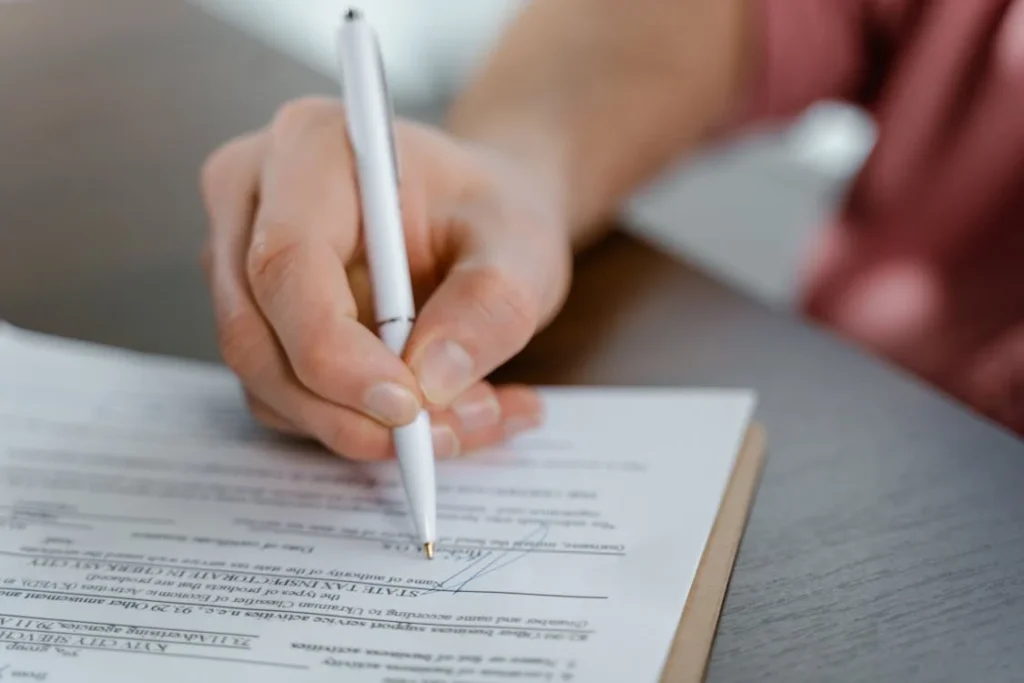
The Claim Submission Process
Once you have gathered all the required documents, the next step is submitting your insurance claim.
This process involves sending your paperwork to the insurance company, following up on approval, and ensuring that you receive the reimbursement or direct payment for your prosthetic limb.
Understanding how to navigate this stage can help you avoid common mistakes that lead to claim denials or delays.
Filling Out the Insurance Claim Form
Every insurance company provides a specific claim form that must be completed accurately. This form typically asks for personal details, insurance policy information, a description of your medical condition, and the type of prosthetic limb being claimed.
It is essential to double-check all entries to ensure there are no mistakes, as errors in names, policy numbers, or medical details can cause unnecessary delays.
Some forms require signatures from both you and your doctor. If this is the case, ensure that all required signatures are in place before submission. Missing a single signature could result in your claim being rejected or sent back for corrections, further delaying the process.
Submitting the Claim and Supporting Documents
Most insurance companies allow claim submissions through multiple channels, such as online portals, email, or physical submission at a branch office.
If you are submitting your documents online, make sure that all scanned copies are clear and readable. Blurry or incomplete documents may lead to rejection.
For physical submissions, it’s always a good idea to keep copies of all your documents for reference. Attaching a cover letter summarizing your claim can also be helpful, as it provides an overview of your request and ensures that nothing is overlooked by the insurance company.
Following Up on Your Claim
After submission, it’s crucial to follow up regularly to check the status of your claim. Most insurance companies provide a tracking system where you can monitor the progress of your request.
If your claim is taking longer than expected, calling the insurance helpline or visiting the branch can help speed up the process.
In some cases, the insurance company may request additional documents or clarifications. Responding promptly to these requests is important to avoid further delays.
If your claim is denied, ask for a detailed explanation and check if you can submit an appeal with additional supporting documents.
At Robobionics, we understand that the insurance claim process can be challenging. That’s why we assist our customers in preparing the right paperwork and ensuring smooth claim submissions.
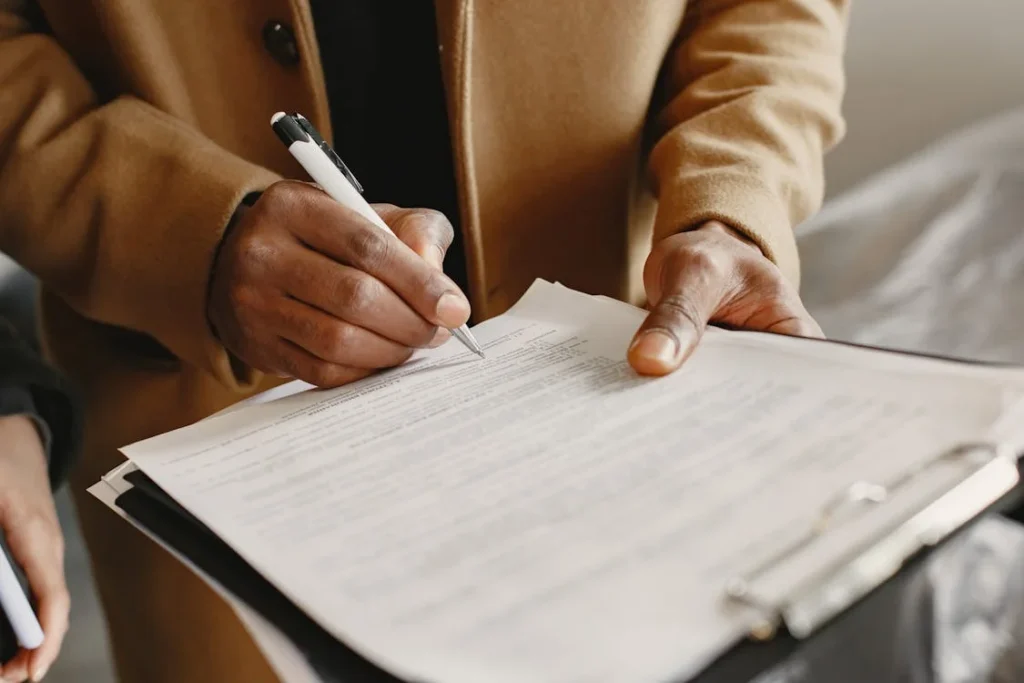
Common Challenges in Claiming Insurance for Prosthetics
Even when all documents are submitted correctly, some insurance claims face delays or rejections. Understanding common challenges can help you prepare in advance and increase the chances of a successful claim.
Claim Denials Due to Insufficient Medical Justification
One of the most common reasons for claim rejection is inadequate medical justification. Insurance companies require detailed proof that a prosthetic limb is necessary for your daily life and mobility.
If the doctor’s prescription or medical reports lack specific details, insurers may deny the claim on the grounds of insufficient evidence.
To avoid this, ensure that your medical reports clearly state your condition, the type of amputation, and why a prosthetic is required. If possible, ask your doctor to include an assessment of how the prosthetic will improve your mobility and quality of life.
A well-documented case strengthens your claim and minimizes the chances of rejection.
Delays in Pre-Authorization
For insurance plans that require pre-authorization, waiting for approval can sometimes take longer than expected. If the approval process is slow, it may delay your access to the prosthetic, affecting your rehabilitation and daily activities.
To speed up the process, submit your pre-authorization request as early as possible. Following up with the insurance company regularly can also help push the approval faster.
If there is an unreasonable delay, contacting a senior representative or filing a complaint can sometimes escalate the process.
At Robobionics, we help our customers navigate pre-authorization challenges by providing accurate cost estimates and medical documentation that meet insurance requirements.
If you are facing difficulties, our team is here to assist you in getting the approval you need. Contact us today for expert guidance on your insurance claim!
Lack of Coverage for Advanced Prosthetics
Some insurance plans have restrictions on the type of prosthetic limb they cover. While basic prosthetics may be approved easily, advanced prosthetic limbs like Grippy™ may require additional justification.
Insurers may argue that a lower-cost alternative is sufficient, even if the advanced prosthetic provides better functionality.
If this happens, you may need to submit additional supporting documents explaining why the advanced prosthetic is necessary.
Your doctor or prosthetist can write a detailed report comparing the benefits of different types of prosthetics and justifying why the higher-end option is the best fit for you.
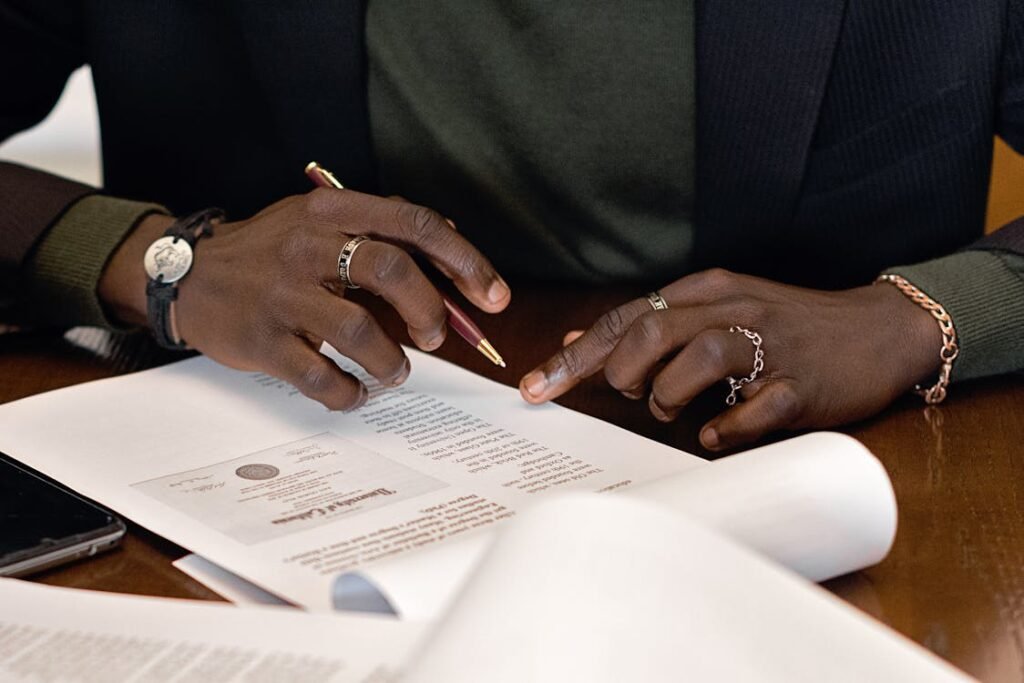
Maximizing Your Chances of a Successful Insurance Claim
Understanding the process and potential challenges is important, but taking proactive steps can further improve your chances of getting your insurance claim approved. Careful preparation, professional guidance, and timely follow-ups can make a significant difference in the outcome.
Working with an Experienced Prosthetist
Your prosthetist plays a key role not just in designing your prosthetic but also in ensuring a smooth insurance claim process.
A well-trained and experienced prosthetist will provide accurate cost estimates, technical specifications, and functional assessments that align with insurance requirements.
At Robobionics, we specialize in helping our customers navigate the insurance process by providing all necessary documentation, including detailed reports on how a prosthetic like Grippy™ can enhance mobility and independence.
We also assist in filling out insurance forms correctly to reduce the chances of errors. Book a free consultation today and let us guide you through the process!
Keeping Clear and Organized Records
Insurance claims involve multiple documents, and losing even one important paper can cause delays.
Keeping all medical records, prescriptions, invoices, and correspondence with the insurance company in one folder—either digitally or physically—ensures quick access when needed.
It’s also beneficial to maintain copies of every document you submit. If the insurer misplaces your paperwork or requests additional copies, having duplicates readily available can save valuable time.
Understanding the Appeal Process
Even if your claim is denied, you still have options. Many insurance companies allow claimants to file an appeal if they believe their request was unfairly rejected.
The appeal process typically involves submitting additional documents or a written explanation detailing why the claim should be reconsidered.
If your claim is denied, request a formal explanation in writing. Carefully review the reason for rejection and check if additional documentation, such as a more detailed medical justification, can strengthen your case.
In some situations, getting legal or professional help can be beneficial in making a strong appeal.
At Robobionics, we understand that dealing with insurance claims can be frustrating. That’s why we provide complete support to help our customers through the entire process, from gathering documents to handling claim denials.

Understanding the Role of Rehabilitation in Insurance Claims
Prosthetic limbs are not just about restoring movement—they also require a period of adjustment and training to ensure proper usage.
Many insurance companies recognize the importance of rehabilitation and may cover associated costs, but this depends on the specifics of your policy.
Why Rehabilitation Matters for Insurance Approval
Rehabilitation helps individuals regain strength, balance, and coordination while adapting to their new prosthetic. Insurance providers often consider this an essential part of the recovery process, especially if a prosthetic is prescribed for long-term use.
Some insurers may require proof that the patient is committed to rehabilitation before approving a claim. This means that in addition to prescriptions and medical reports, a rehabilitation plan from a physiotherapist or occupational therapist can strengthen your case.
These programs help users feel more confident with their prosthetic limb, and in some cases, insurance companies may recognize these structured rehabilitation efforts as a necessary component of prosthetic use.
If your policy includes coverage for rehabilitation, submitting a rehabilitation plan alongside your claim can improve your chances of approval. Learn more about our innovative rehabilitation solutions—contact us today!
Getting Coverage for Physical Therapy and Training
If your insurance plan covers physiotherapy, ensure that your claim includes details about the therapy sessions, expected duration, and costs.
Your physiotherapist should provide a formal letter stating how rehabilitation will help improve mobility with the prosthetic limb. This letter, along with session invoices, can be crucial for reimbursement.
Some insurance companies also offer partial or full coverage for assistive devices such as mobility aids or wearable sensors used during rehabilitation.
If you are unsure whether your policy includes these benefits, it’s worth discussing with your provider before finalizing your claim.
The Impact of Government Schemes and Subsidies
Apart from private insurance, several government programs in India offer financial assistance for prosthetic limbs. These schemes can either supplement your insurance claim or provide an alternative funding option if your insurance does not cover the full cost.
Exploring Government Support Programs
India has multiple disability welfare programs that provide financial aid for prosthetic devices. Some of the key initiatives include:
- ADIP (Assistance to Disabled Persons for Purchase/Fitting of Aids and Appliances) Scheme – A government program that provides financial support for assistive devices, including prosthetic limbs, to individuals with disabilities. If you qualify, you may receive full or partial funding for your prosthetic.
- State Disability Welfare Boards – Many state governments have their own schemes that support prosthetic users by covering part of the cost. The eligibility criteria and coverage vary by state.
- ESIC (Employees’ State Insurance Corporation) – If you were employed and suffered limb loss due to a workplace accident, you might be eligible for prosthetic coverage under ESIC.
Understanding these schemes and how they work alongside your insurance can help you reduce your out-of-pocket expenses.
If you qualify for government assistance, you may need to submit additional documents such as income proof, disability certificates, and application forms specific to each scheme.
The Importance of Timely Claim Submission
Even with all the right documents in place, failing to submit your claim on time can result in denial. Most insurance providers have strict deadlines for claim submissions, and missing these can mean losing out on reimbursement.
Knowing the Time Limits for Submission
Different insurance companies have different rules regarding when a claim must be submitted. Some policies require submission within a few weeks of receiving the prosthetic, while others allow several months.
It’s crucial to check these deadlines early in the process and ensure that all paperwork is completed and sent within the required timeframe.
Delays can occur if additional documents are needed, so it’s best to start the claim process as soon as possible. If your insurance provider allows online submissions, take advantage of faster processing times by uploading documents through their digital portal.
The Role of Hospitals and Clinics in the Insurance Process
While your insurance company is responsible for approving and processing your claim, hospitals and prosthetic clinics play a crucial role in ensuring you have the right medical documents.
If you work closely with your healthcare providers, the process becomes smoother, reducing the chances of rejection or unnecessary delays.
Coordinating with Your Hospital for Medical Documentation
Hospitals maintain detailed records of your medical history, including diagnoses, treatments, surgeries, and rehabilitation progress. These records are essential for your insurance claim, as they provide evidence of your condition and the medical necessity of a prosthetic limb.
Before submitting your claim, request copies of all relevant medical reports from your hospital. If your insurer asks for specific details, such as the date of your amputation or any previous treatments, your hospital’s records department can provide the necessary documents.
Some hospitals also have dedicated medical social workers who assist patients in navigating the insurance process. If available, consulting with them can be extremely beneficial.
Getting the Right Documents from Your Prosthetic Clinic
Prosthetic clinics, like Omnify Prosthetics, which works with Robobionics, provide essential documents that support your insurance claim. This includes:
- Detailed prosthetic prescriptions specifying the exact type of limb recommended for you.
- Cost estimates and invoices that clearly break down the price of the prosthetic and its components.
- Usage and benefits reports explaining how the prosthetic will help in daily activities, which can strengthen your claim.
If your insurance provider requests technical specifications or additional details, your prosthetic clinic can provide these quickly. Working with an experienced prosthetic provider ensures that all documents are prepared correctly, minimizing the risk of delays.

What to Do If Your Claim Is Rejected
Even with careful preparation, some claims get rejected. A rejection doesn’t mean the end of the process—most insurance providers allow you to resubmit with additional documents or appeal the decision.
Understanding why claims are denied and knowing how to respond can increase your chances of approval.
Understanding the Reasons for Claim Denial
Insurance claims are usually rejected for the following reasons:
- Insufficient medical justification – The insurer may believe that the prosthetic is not medically necessary or that a lower-cost alternative would suffice.
- Incorrect or missing documents – Even a small mistake, such as a missing signature, an incorrect policy number, or an unclear medical report, can lead to denial.
- Policy exclusions – Some insurance policies exclude coverage for specific types of prosthetics, requiring additional justification or an appeal.
- Submission delays – If you missed the claim submission deadline, the insurer might refuse to process your request.
If your claim is denied, request a detailed rejection letter from your insurance provider. This document will explain why the claim was rejected and whether there is an option to appeal.
Steps to Take After a Claim Rejection
If your claim is denied, take the following steps:
- Review the rejection letter carefully and identify the reason for denial.
- Gather additional documents if needed—this could include more detailed medical reports, additional cost breakdowns, or a functional assessment from your prosthetist.
- Write a formal appeal letter explaining why the prosthetic is necessary and why the claim should be reconsidered. Attach all supporting documents to strengthen your case.
- Submit the appeal within the allowed timeframe—most insurers provide a window for reconsideration.
- Follow up regularly with the insurance company to track your appeal status.
Alternative Funding Options If Insurance Doesn’t Cover Your Prosthetic
In some cases, insurance may not cover the full cost of a prosthetic, or you may not have insurance coverage at all. If this happens, there are still several ways to get financial assistance for your prosthetic limb.
Crowdfunding and Social Support
Many individuals turn to crowdfunding platforms like Ketto, Milaap, or GoFundMe to raise funds for prosthetic limbs. Sharing your story on social media and seeking support from friends, family, and well-wishers can help you gather the necessary funds.
Crowdfunding has been an effective solution for many people who need high-quality prosthetics but cannot afford them on their own.
Nonprofit Organizations and Charities
Several nonprofit organizations provide financial aid for prosthetic limbs, especially for individuals from underprivileged backgrounds.
Organizations like The Jaipur Foot Foundation, Narayan Seva Sansthan, and Rotary Clubs often support prosthetic users by funding or partially subsidizing the cost. Applying to these organizations with the proper documents can help secure additional funding.
Employer and Corporate Support
If you lost a limb due to a workplace injury, your employer may offer compensation or assistance for prosthetic costs.
Some companies also have employee health benefit programs that provide partial or full coverage for medical expenses, including prosthetics. Check with your HR department to explore any available options.
Conclusion
Claiming insurance for a prosthetic limb can seem overwhelming, but with the right knowledge and preparation, the process becomes much smoother. Understanding your policy, gathering all required medical and financial documents, and following up on your claim are key steps to ensuring approval. If your claim is denied, don’t lose hope—appeals, alternative funding, and government assistance programs can provide additional support.
At Robobionics, we are dedicated to making prosthetics more accessible by offering expert guidance throughout the insurance process. Whether you need help with documentation, cost estimates, or rehabilitation support, our team is here to assist you every step of the way.
If you’re looking for a high-quality, advanced prosthetic hand like Grippy™, or need assistance in navigating insurance claims, book a free consultation with us today! Let us help you regain independence with the right prosthetic solution.



